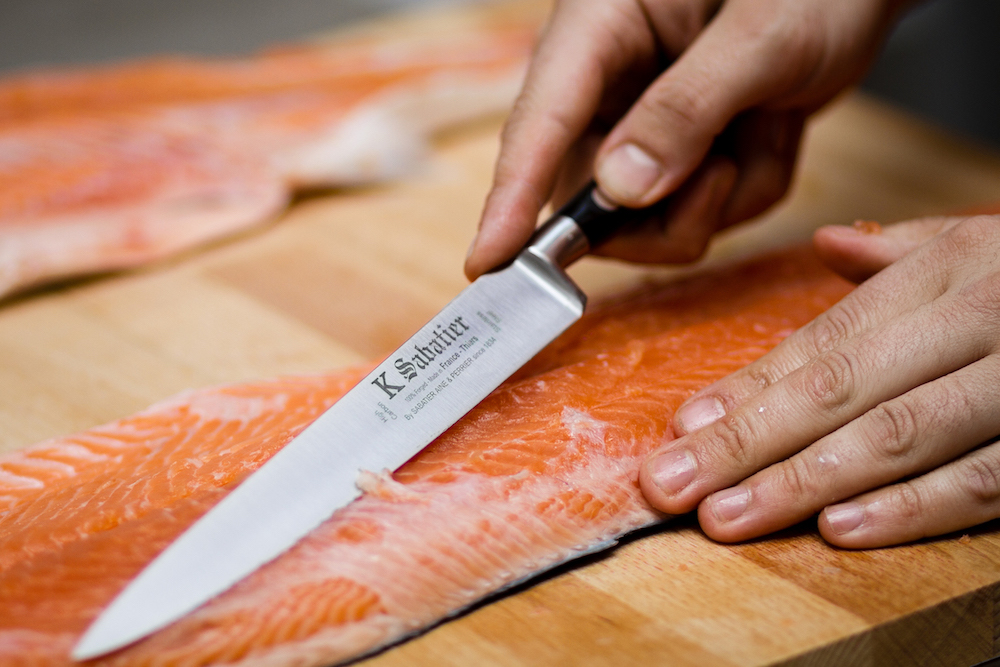You have no items in your shopping cart.
A kitchen knife is an essential tool for your kitchen. You must therefore take care of it and know how to maintain it.
There are several types of kitchen knives: paring knives, kitchen knives, chef knives, slicing knives, sole fillets, Hams and salmon, as well as steak knives
You use them every day. You have to know how to maintain them, clean them and put them away.
Maintenance is rather simple when the knives are of good quality. With a sharpening steel, you can maintain the cutting edge easily and with ease.
You also need to know how to clean them without damaging them in order to keep them as long as possible.
There are 2 types of steel for making knives:
- Stainless steel
This steel is simple to clean, because water, the acidity of food will not alternate steel, its color, its shine.
At the end of its use, you can clean it by passing it water with a sponge and washing up liquid.
Do not use an abrasive sponge so as not to scratch the steel. If the food has dried on the blade, immerse the blade in water and wait a few minutes to be able to clean it easily.

- Carbon steel
Carbon steel is a very special steel. This steel changes colors during use over time. He does not like the water or the acidity of certain fruits or vegetables like lemon.
After use, clean the knife with soapy water and a soft sponge. Then immediately wipe the entire knife.
Don't let it dry, don't leave it wet.
The steel will change colors, and may turn black. Do not worry.
Above all, the steel must not rust.
When used, a knife made of carbon steel will change colors. This is completely normal. If you do not wish to have this type of problem with carbon knives, we do not recommend buying a carbon knife, but rather a stainless steel knife. The latter is very easy to maintain. It will not rust during normal use: use in a professional kitchen, use in a family kitchen.
We repeat: carbon steel requires specific maintenance: do not leave the blades wet, do not put them in a dishwasher, do not cut certain foods unless you wash and dry them immediately.
When in use, the blade of a Sabatier knife made of carbon steel will blacken, stain. He's going to age. This is also what makes the charm of this type of knife.
Regarding the handles: they can be easily cleaned with soapy water, except the natural wooden handles (Juniper wood, olive wood....).
Natural woods don't like water too much because water can stain wood, and humidity can make wood work. The sleeves can then move.
Do not wet, do not dip the wooden handles in water, clean them with as little water as possible. Wipe them off as quickly as possible.
You should also know that the knives will live with us. Use them every day and take care of them so that they are companions, essential tools.
Do not put carbon steel knives in your dishwasher. Never do it.
Also avoid putting your stainless knives in the dishwasher to avoid damaging the edge of the knives, the wire, the handle ...

